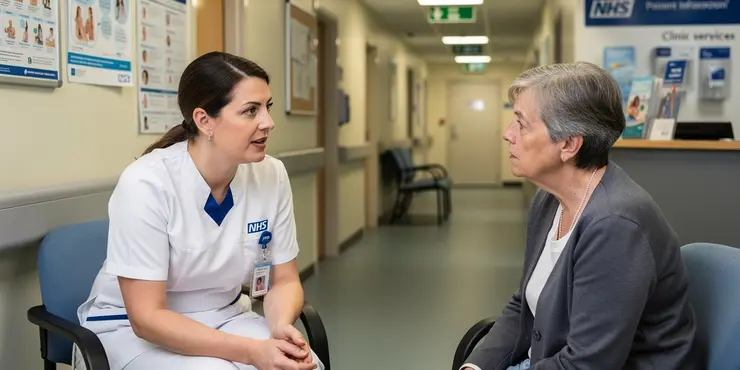
Find Help
More Items From Ergsy search
-
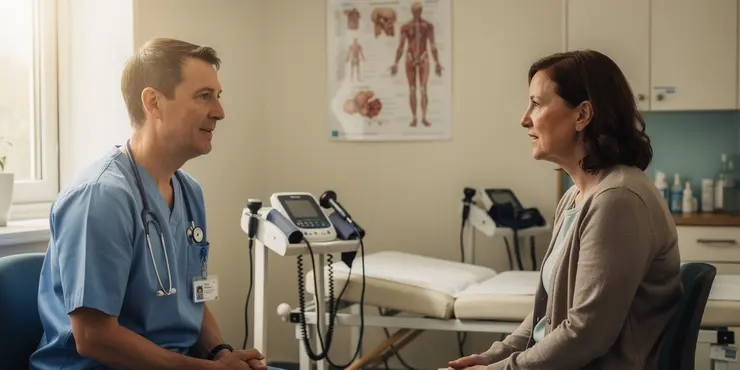
Is appendicitis hereditary?
Relevance: 100%
-
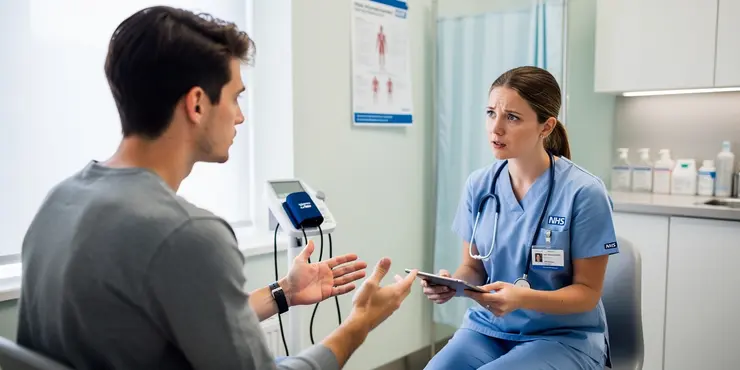
What is Appendicitis?
Relevance: 99%
-
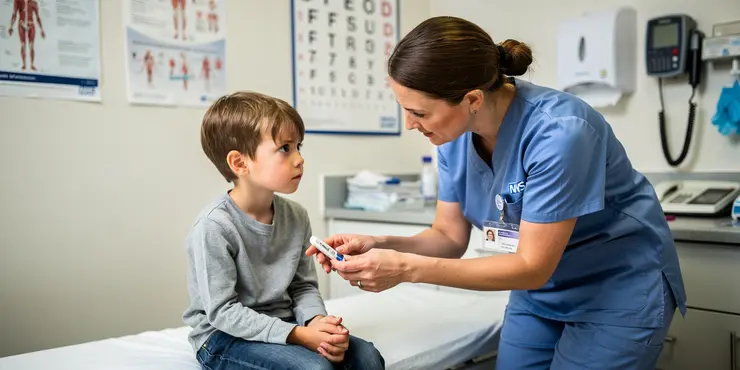
What causes appendicitis?
Relevance: 95%
-
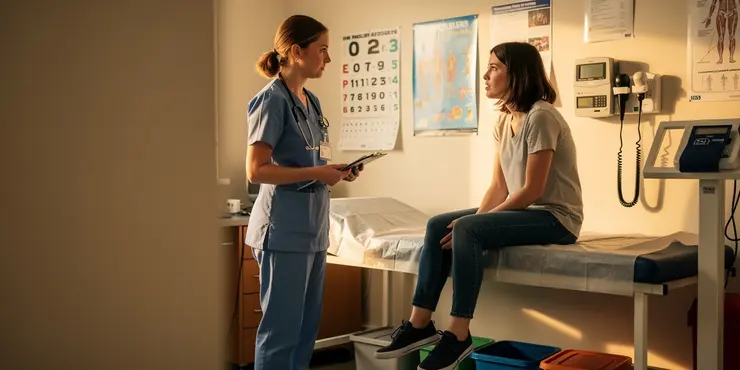
How is appendicitis diagnosed?
Relevance: 94%
-
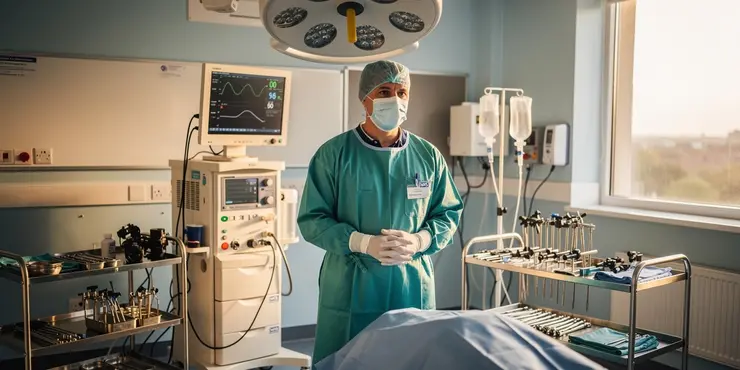
What is the treatment for appendicitis?
Relevance: 92%
-
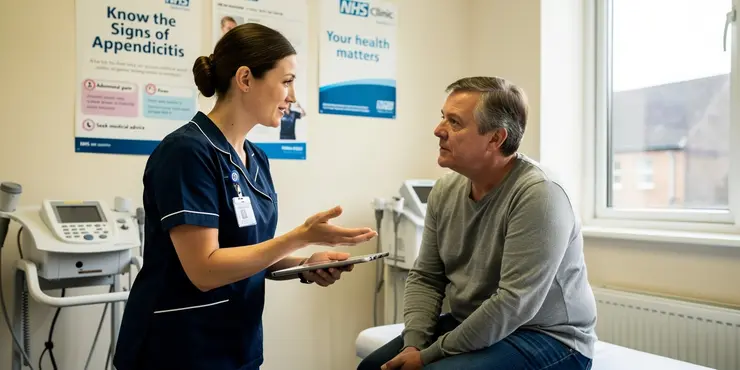
What are the common symptoms of appendicitis?
Relevance: 91%
-
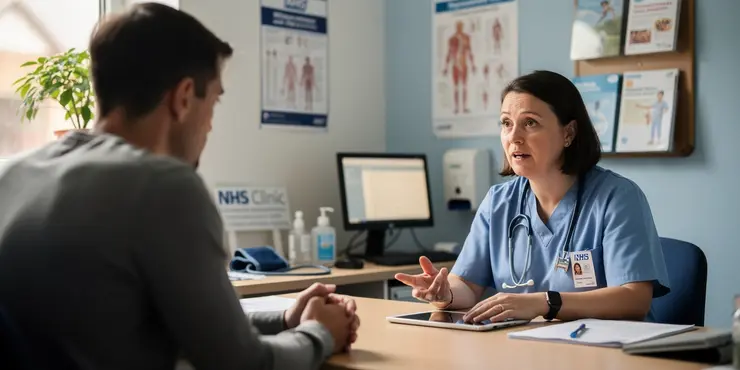
Can appendicitis be treated with antibiotics?
Relevance: 91%
-
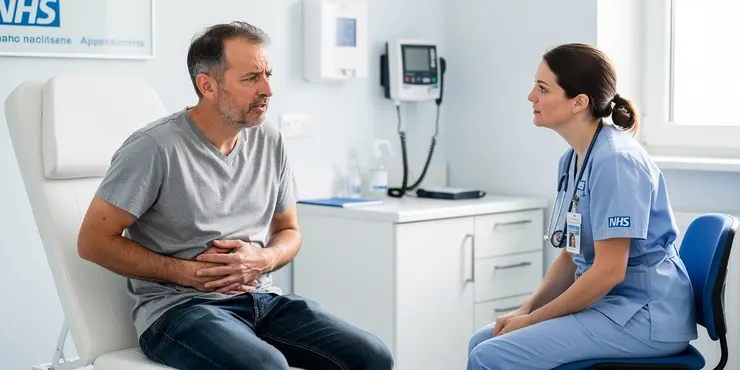
What are the potential complications of appendicitis?
Relevance: 89%
-
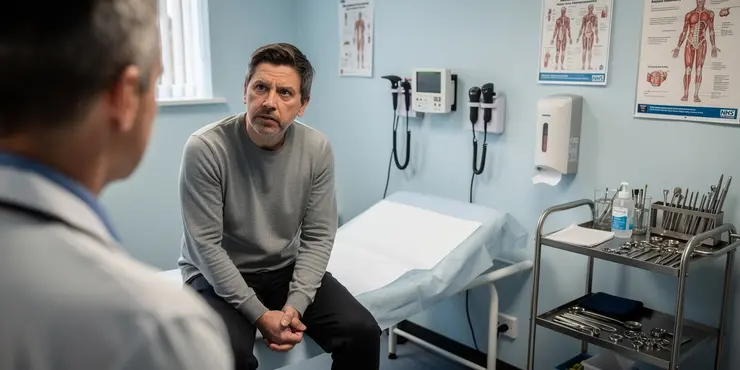
What happens if appendicitis is left untreated?
Relevance: 88%
-
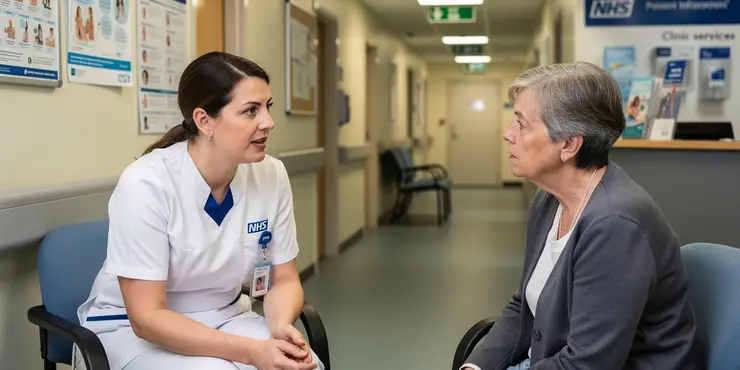
Can appendicitis occur more than once?
Relevance: 86%
-
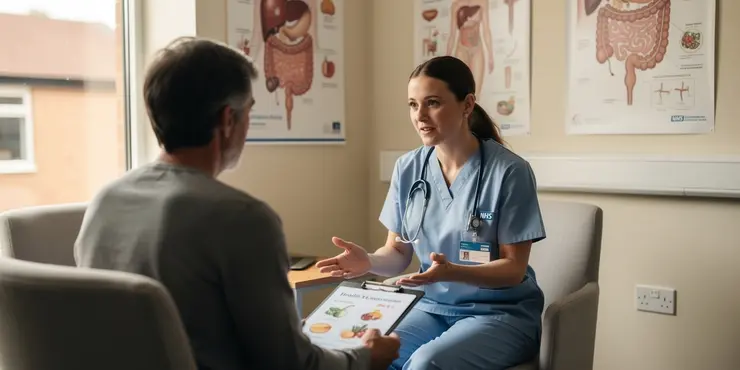
Can diet or lifestyle changes prevent appendicitis?
Relevance: 86%
-
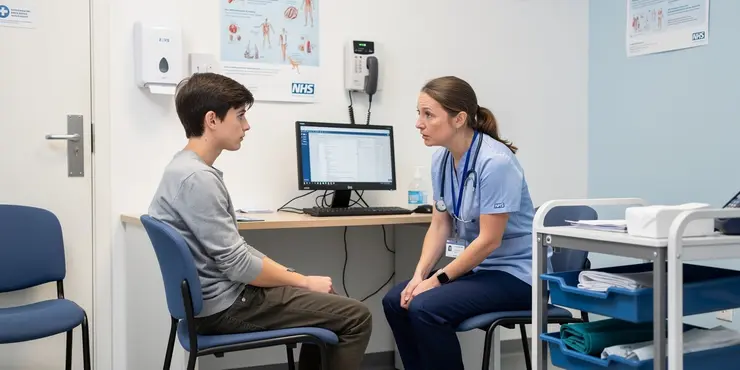
Is appendicitis common in any particular age group?
Relevance: 86%
-
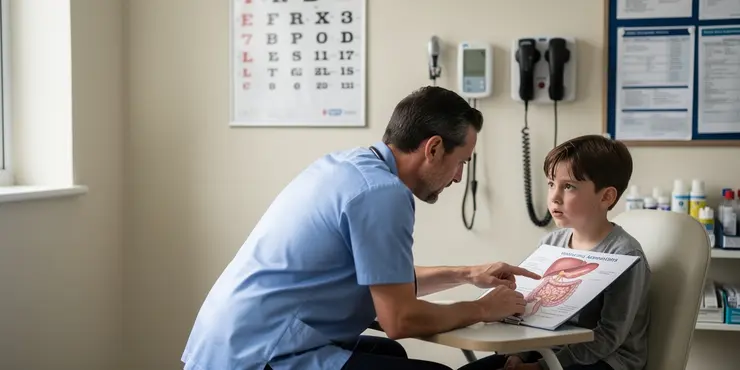
What is the likelihood of needing surgery for suspected appendicitis?
Relevance: 86%
-

Can appendicitis go away on its own?
Relevance: 86%
-
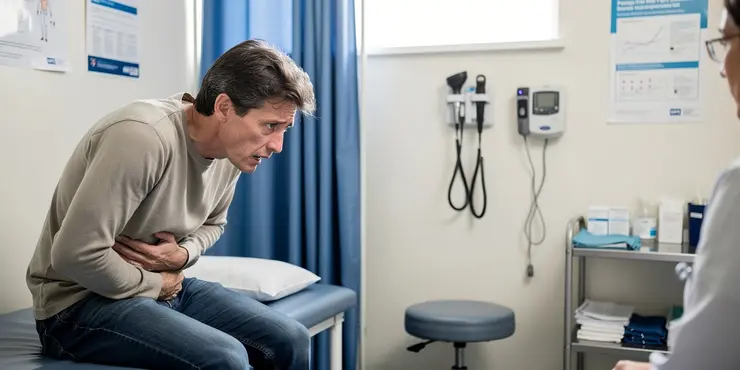
Where is the pain located when you have appendicitis?
Relevance: 83%
-
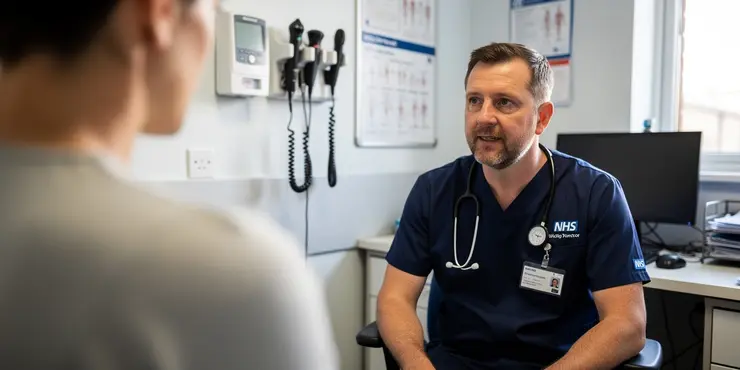
How is appendicitis different from other causes of abdominal pain?
Relevance: 82%
-
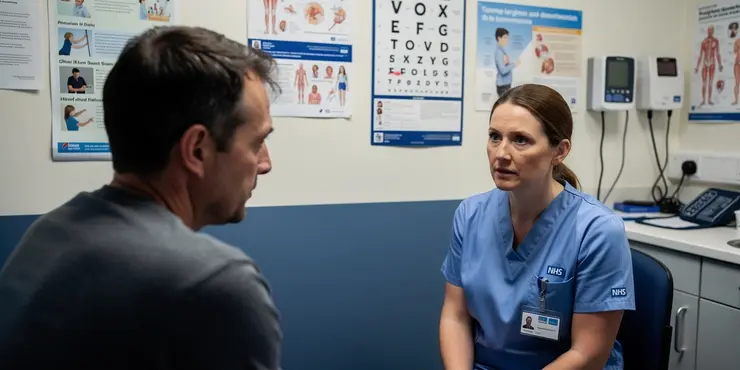
How soon should you see a doctor if you suspect appendicitis?
Relevance: 80%
-

Can you live without an appendix?
Relevance: 43%
-
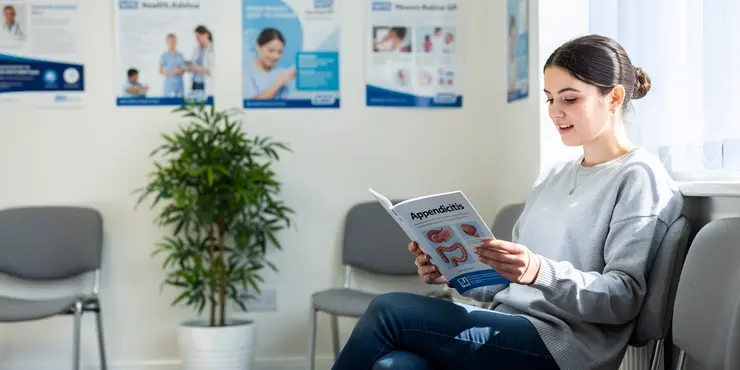
Are there any risk factors for appendicitis?
Relevance: 40%
-

Stomach ache and abdominal pain
Relevance: 24%
-

How long is the recovery time after an appendectomy?
Relevance: 13%
-
How do I know if my surgery is considered elective or urgent?
Relevance: 13%
-
Is my healthcare provider obligated to correct errors in my medical records?
Relevance: 6%
-
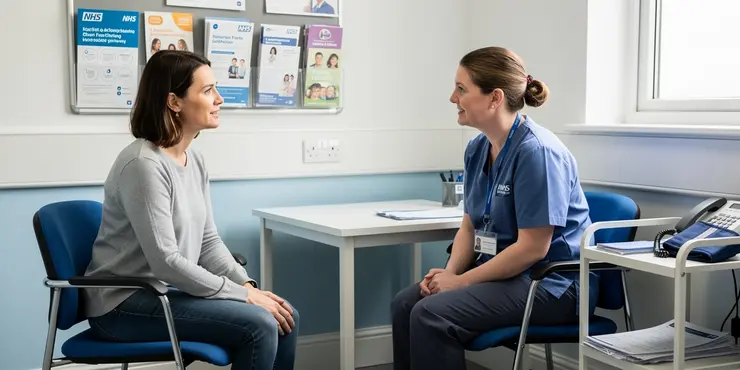
Understanding Your Sexual Health - Pelvic Inflammatory Disease
Relevance: 6%
Understanding Appendicitis
Appendicitis is a medical condition characterized by the inflammation of the appendix, a small, tube-shaped organ attached to the large intestine. This condition primarily occurs when the appendix becomes blocked, leading to an infection. Common symptoms include abdominal pain, nausea, vomiting, and fever. In many cases, surgical removal of the appendix, known as an appendectomy, is required to prevent complications such as a ruptured appendix.
Can Appendicitis Occur More Than Once?
The possibility of appendicitis occurring more than once is a topic of interest and concern for many. Typically, once an appendectomy has been performed and the appendix is removed, the risk of developing appendicitis again is essentially eliminated, as there is no longer an appendix to become inflamed. Therefore, in almost all instances, appendicitis itself cannot recur after surgical removal of the appendix.
Cases of Recurrent Appendicitis
In rare circumstances, some individuals might experience what seems to be recurrent appendicitis before their appendix is removed. This is known as "chronic appendicitis," where mild inflammation occurs over time, possibly resolving spontaneously or with medical treatment before recurring. However, this is uncommon, and most appendicitis cases identified are acute, requiring immediate surgical intervention.
Pain After Appendectomy
While appendicitis cannot recur once the appendix is removed, some people may experience abdominal pain or similar symptoms after an appendectomy. This is not due to appendicitis but could be attributed to several other factors, such as post-surgical complications, adhesions, or other gastrointestinal issues. It's crucial for patients experiencing symptoms post-surgery to consult with a healthcare professional for proper diagnosis and management.
The Importance of Medical Evaluation
For individuals experiencing recurrent abdominal pain, even after an appendectomy, seeking medical evaluation is essential. Other conditions may mimic appendicitis, including gastrointestinal infections, gallbladder issues, or urinary tract disorders. Hence, professional assessment ensures accurate diagnosis and appropriate treatment. In the UK, patients can access medical advice through their GP or NHS services.
Conclusion
In summary, appendicitis itself does not recur after the appendix is surgically removed. Although symptoms similar to appendicitis may appear post-surgery, they are likely due to other health issues. It remains important for individuals experiencing such symptoms to seek medical advice for proper diagnosis and treatment. Understanding the nature of appendicitis and the impact of an appendectomy is vital for patient reassurance and health management.
Understanding Appendicitis
Appendicitis is when the appendix gets swollen and sore. The appendix is a small, tube-like part in your belly. It can get blocked and infected. Signs of appendicitis include belly pain, feeling sick, throwing up, and having a fever. Doctors might need to take out the appendix in an operation called an appendectomy to stop it from bursting.
Can Appendicitis Happen More Than Once?
People often wonder if appendicitis can happen again. Usually, after an appendectomy, you can't get appendicitis again because the appendix is gone. So, in almost all cases, once the appendix is out, appendicitis does not come back.
Cases of Recurrent Appendicitis
Sometimes, before the appendix is taken out, a person might feel like they get appendicitis more than once. This can be mild swelling that goes away on its own and is called "chronic appendicitis." But this is rare. Most people with appendicitis need a quick operation to fix it.
Pain After Appendectomy
After the appendix is gone, you can't get appendicitis. But some people may still feel pain in their belly. This is not because of appendicitis. It might be due to other reasons, like problems from surgery or tummy issues. It’s important to talk to a doctor to find out what's wrong.
The Importance of Medical Evaluation
If someone has belly pain after taking out the appendix, they should see a doctor. Other problems can look like appendicitis, such as tummy bugs or issues with the gallbladder or urine infections. Going to a doctor helps find the right cause and treatment. In the UK, people can see their doctor or use NHS services for help.
Conclusion
To sum up, you can't get appendicitis again after the appendix is removed. If you get belly pain after surgery, it's probably from something else. It’s vital to see a doctor to find out the cause and treat it properly. Knowing about appendicitis and what happens after surgery helps people feel better and stay healthy.
Frequently Asked Questions
Can appendicitis occur more than once?
Once the appendix is removed through surgery (appendectomy), appendicitis cannot occur again because there is no appendix left to become inflamed.
What happens if you have appendicitis more than once?
If an appendix is not removed completely or if there is a rare anatomic variation like a duplicated appendix, symptoms might mimic recurrent appendicitis, but true appendicitis cannot recur in the typical scenario.
Can symptoms similar to appendicitis reappear if the appendix is removed?
Yes, symptoms can reappear due to other conditions such as gastrointestinal issues, which may mimic appendicitis.
Is it possible for the appendix to grow back after removal?
No, the appendix does not grow back once it is surgically removed.
What are some conditions that mimic appendicitis?
Conditions such as Crohn's disease, ovarian cysts, or urinary tract infections can mimic the symptoms of appendicitis.
What is the treatment for recurrent appendicitis symptoms?
Treatment depends on the underlying cause of the symptoms, which a healthcare provider can diagnose.
Why do some people believe appendicitis can happen more than once?
Misdiagnoses or continuing abdominal symptoms can lead to the belief that appendicitis has recurred.
How is appendicitis diagnosed?
Appendicitis is diagnosed through physical examination, blood tests, imaging tests like ultrasound or CT scan, and the patient's medical history.
Can you have appendicitis if you feel fine sometimes?
Early appendicitis can have fluctuating symptoms, but typically, it will worsen without treatment.
What should you do if you suspect appendicitis after surgery?
Consult a healthcare provider immediately to rule out other causes of abdominal pain.
What is chronic appendicitis?
Chronic appendicitis is a rare condition where mild appendicitis symptoms persist over an extended period.
Can untreated appendicitis resolve on its own?
In rare cases, appendicitis symptoms may temporarily subside, but medical evaluation is always necessary as it can recur or worsen.
Is it common to misdiagnose appendicitis?
Appendicitis can be mistaken for other conditions due to similar symptoms, hence the importance of accurate diagnosis.
What is involved in an appendectomy?
An appendectomy is the surgical removal of the appendix, often performed laparoscopically.
Can other organs cause pain similar to appendicitis?
Yes, organs like the intestines, gallbladder, and reproductive organs can cause similar pain if affected.
Can bowel issues cause recurring pain after appendectomy?
Yes, bowel issues such as constipation or irritable bowel syndrome can cause pain post-surgery.
What is the risk of an appendix left untreated?
If untreated, the appendix can rupture, leading to peritonitis, a serious infection in the abdomen.
Can imaging tests detect recurrent appendicitis symptoms?
Imaging can help identify other abdominal issues but won't show appendicitis if the appendix has been removed.
How long does recovery take after an appendectomy?
Recovery usually takes a few weeks, with laparoscopic surgery having a shorter recovery period than open surgery.
Do lifestyle changes affect recurrence of symptoms post-appendectomy?
Dietary and lifestyle changes can help manage abdominal symptoms but won't prevent recurrence of appendicitis, as it cannot occur post-appendectomy.
Can you get appendicitis more than one time?
Usually, you can only get appendicitis one time. After you get it, doctors often take out your appendix. Once it’s gone, you can't get appendicitis again.
If you have worries or questions, ask a doctor for help. They can tell you more and make you feel better.
If reading is hard, ask someone you trust to read with you. You can also use tools like audiobooks to listen instead of reading. This can make things easier to understand.
Once doctors take out the appendix with surgery (called an appendectomy), you cannot get appendicitis again. This is because you do not have an appendix anymore.
Can you get appendicitis more than once?
You cannot have appendicitis more than once because doctors usually remove the appendix the first time you get it. After the appendix is taken out, it can't get infected again. If you feel pain or think you have appendicitis again, it's important to tell a doctor. They can help find out what is wrong.
Here are some tips to help understand this topic better:
- Ask for help: If you're confused, talk to a parent or teacher.
- Use simple words: Try to say things in your own way.
- Pictures can help: Look at diagrams of the body to see where the appendix is.
If the appendix is not taken out all the way, or if someone has two appendixes because of a rare body difference, it might feel like they have appendicitis again. But usually, you can’t get true appendicitis again after it happens once.
For help understanding words, you can use a dictionary. Reading tools like audiobooks or reading apps can also help. Being able to ask someone to explain things can make it easier too.
Can appendix pain come back after it’s taken out?
Sometimes people wonder if they can feel pain like they did before after their appendix is removed. Let’s look at this in a simple way.
If doctors take out your appendix, it usually means those appendix problems should not come back. But sometimes, you might still feel pain in your belly (tummy) where your appendix was.
Always talk to a doctor if you feel this pain. It’s important they check what’s going on.
If reading feels hard, you can try:
- Reading with a friend or family member.
- Using apps that read the text out loud for you.
- Drawing pictures to help you understand the words.
Yes, symptoms can come back because of other problems, like tummy troubles, that might seem like appendicitis.
Can the appendix grow back after it is taken out?
The appendix is a small part of the body that doctors sometimes take out if it causes problems.
Once the appendix is taken out, it does not grow back.
If you want to understand more, talking to a doctor can help.
Using pictures or videos might make it easier to learn about the body and the appendix.
No, the appendix cannot grow back after a doctor takes it out with surgery.
What else can feel like appendicitis?
Sometimes, other problems inside the belly can feel like appendicitis. Here are some:
- Stomach virus: This can make your tummy hurt.
- Food poisoning: Eating bad food can upset your tummy.
- Urinary tract infection (UTI): This can cause pain in your tummy area.
- Constipation: Having trouble going to the bathroom can hurt.
If you feel any of these pains, it is important to talk to a grown-up or a doctor.
Ways to help:
- Ask someone to read this with you.
- Look at pictures of the body to understand better.
- Use simple words when talking to the doctor.
Sometimes, other health problems can feel like appendicitis. These can be Crohn's disease, ovarian cysts, or urinary tract infections.
How do doctors help if my tummy pain from the appendix comes back?
The treatment you need will depend on what is making you feel unwell. A doctor or nurse can tell you what the problem is.
Why do some people think appendicitis can happen again?
Some people think you can get appendicitis more than once. Here is why:
- They might not know how appendicitis works.
- They might have heard stories from others.
If your appendix is taken out, you usually can't get appendicitis again. If you've had pain after surgery, talk to a doctor. A doctor can help you understand more.
To learn more easily, try these tips:
- Ask someone you trust to explain it.
- Use picture books or videos about health.
- Write down questions you want to ask a doctor.
Sometimes doctors make mistakes, or your tummy keeps hurting. This might make you think that your appendix problem has come back.
How do doctors find out if you have appendicitis?
Doctors find out if someone has appendicitis by doing a check-up. They might take a little bit of your blood for testing. They use special pictures called ultrasounds or CT scans to look inside your body. Doctors also ask questions about how you've been feeling.
Can you have appendicitis if you feel okay sometimes?
Yes, you can have appendicitis even if you feel okay at times.
- Listen to your body: Pay attention if you get belly pain that comes and goes.
- Talk to an adult: If you feel sick or have pain, tell a parent or teacher.
- Visit a doctor: A doctor can find out if you have appendicitis.
Remember, it's important to get help if you don't feel well.
Appendicitis is when your appendix gets sick. Sometimes, the symptoms or signs might come and go. But if you do not get help from a doctor, it usually gets worse.
What to do if you think you have appendicitis after surgery?
If you had an operation recently and think your appendix might hurt:
- Tell a grown-up you trust, like a parent or caregiver.
- Phone or visit your doctor.
- If it hurts a lot, go to the hospital.
Ask for help if you need it. You can use tools like picture charts or videos to understand better.
See a doctor right away to find out why your tummy hurts.
What is long-term appendicitis?
Long-term appendicitis is when a part inside your belly, called the appendix, is swollen for a long time. It might hurt on and off.
Helpful tips:
- If you feel tummy pain, tell an adult.
- You can use pictures or videos to learn more about it.
- Ask a doctor for more information and help.
Chronic appendicitis is when the appendix is a bit sick for a long time. This is not common.
Can appendicitis get better without treatment?
Sometimes, appendix pain might go away for a little while, but you still need to see a doctor. The pain can come back or get worse.
Do doctors often get appendicitis wrong?
Appendicitis is when a small part in your tummy called the appendix gets sore. Sometimes doctors can get it wrong and think it's something else. If you're worried, ask your doctor to explain.
Here are some tips that can help:
- Ask a friend or family member to go with you to the doctor.
- Write down any questions you want to ask before you see the doctor.
- Use pictures or draw to show where it hurts.
- Ask the doctor to use simple words if you don't understand.
Sometimes, doctors can mix up appendicitis with other illnesses because they have similar signs. This is why it is really important to find out exactly what is wrong.
What happens in an appendix surgery?
When someone has an appendix surgery, the doctor takes out the appendix. The appendix is a small part inside the belly.
This surgery is done because the appendix can get very sore and make you sick. The doctor helps you feel better by removing it.
If you or someone you know needs this surgery, it's okay to ask questions. Here are some helps you might use:
- Ask a doctor or nurse to explain things slowly.
- Look at pictures or videos to understand better.
- Talk to someone who had it before.
It’s normal to feel a bit afraid, but doctors are there to help and keep you safe.
An appendectomy is an operation. Doctors take out the appendix. They often use a tiny camera to help them do it.
Can other body parts cause pain like appendicitis?
Yes, other body parts can hurt like appendicitis. It's important to see a doctor to find out what is causing the pain. Using pictures and simple words can help you understand what the doctor says. You can also ask a family member or friend to go with you to help explain things.
Yes, if organs like the guts, gallbladder, or reproductive organs have problems, they can cause the same kind of pain.
Can problems with the tummy cause pain again after taking out the appendix?
Yes, stomach problems like being unable to poop (constipation) or having a tummy that hurts (irritable bowel syndrome) can cause pain after surgery.
What happens if you don't treat an appendix problem?
If the appendix is not treated, it can burst. This can cause a bad infection called peritonitis in the belly.
Can scans show if appendicitis is back?
Pictures from a special camera can help doctors see other tummy problems, but they won't show appendicitis if your appendix has been taken out.
How long to get better after appendix surgery?
After the doctor takes out the appendix, it takes time to feel good again. Most people feel better in 1 to 4 weeks.
Here are some things that can help:
- Rest a lot and do not do hard activities.
- Eat healthy food and drink lots of water.
- Take medicine if the doctor gives you any.
- Ask someone to help you with things at home.
Usually, it takes a few weeks to get better. If you have keyhole surgery, you will get better faster than if you have big surgery.
Can changes in how you live make symptoms come back after having your appendix removed?
Sometimes, people need an operation to take out their appendix. This is called an appendectomy.
After the operation, you might wonder if changing the way you live could stop some symptoms from coming back. Here are some tips that might help:
- Eat healthy fruits and vegetables to stay strong.
- Try to exercise a little bit every day.
- Get enough rest and sleep to help your body heal.
- Drink plenty of water to stay hydrated.
- Talk to your doctor for advice on staying healthy.
If reading is hard, ask someone to read to you or use an app to help you understand the words. Taking notes or drawing pictures can also help you remember things.
Changing what you eat and how you live can help your tummy feel better. But these changes will not stop appendicitis from coming back. This is because appendicitis cannot happen again after the appendix is removed.
Useful Links
This website offers general information and is not a substitute for professional advice.
Always seek guidance from qualified professionals.
If you have any medical concerns or need urgent help, contact a healthcare professional or emergency services immediately.
Some of this content was generated with AI assistance. We’ve done our best to keep it accurate, helpful, and human-friendly.
- Ergsy carfully checks the information in the videos we provide here.
- Videos shown by Youtube after a video has completed, have NOT been reviewed by ERGSY.
- To view, click the arrow in centre of video.
- Most of the videos you find here will have subtitles and/or closed captions available.
- You may need to turn these on, and choose your preferred language.
- Go to the video you'd like to watch.
- If closed captions (CC) are available, settings will be visible on the bottom right of the video player.
- To turn on Captions, click settings .
- To turn off Captions, click settings again.
More Items From Ergsy search
-

Is appendicitis hereditary?
Relevance: 100%
-

What is Appendicitis?
Relevance: 99%
-

What causes appendicitis?
Relevance: 95%
-

How is appendicitis diagnosed?
Relevance: 94%
-

What is the treatment for appendicitis?
Relevance: 92%
-

What are the common symptoms of appendicitis?
Relevance: 91%
-

Can appendicitis be treated with antibiotics?
Relevance: 91%
-

What are the potential complications of appendicitis?
Relevance: 89%
-

What happens if appendicitis is left untreated?
Relevance: 88%
-

Can appendicitis occur more than once?
Relevance: 86%
-

Can diet or lifestyle changes prevent appendicitis?
Relevance: 86%
-

Is appendicitis common in any particular age group?
Relevance: 86%
-

What is the likelihood of needing surgery for suspected appendicitis?
Relevance: 86%
-

Can appendicitis go away on its own?
Relevance: 86%
-

Where is the pain located when you have appendicitis?
Relevance: 83%
-

How is appendicitis different from other causes of abdominal pain?
Relevance: 82%
-

How soon should you see a doctor if you suspect appendicitis?
Relevance: 80%
-

Can you live without an appendix?
Relevance: 43%
-

Are there any risk factors for appendicitis?
Relevance: 40%
-

Stomach ache and abdominal pain
Relevance: 24%
-

How long is the recovery time after an appendectomy?
Relevance: 13%
-
How do I know if my surgery is considered elective or urgent?
Relevance: 13%
-
Is my healthcare provider obligated to correct errors in my medical records?
Relevance: 6%
-

Understanding Your Sexual Health - Pelvic Inflammatory Disease
Relevance: 6%


